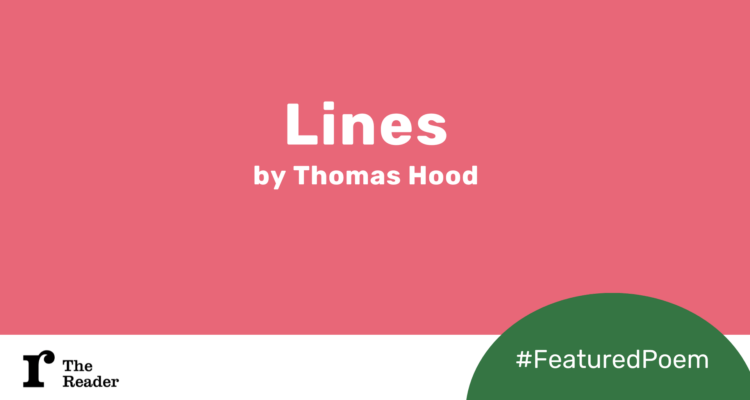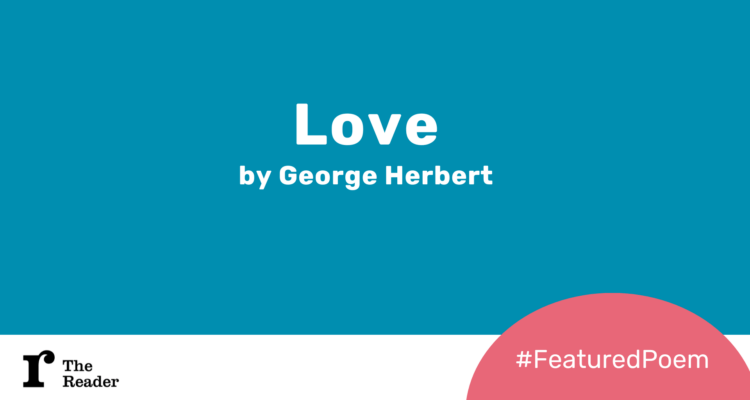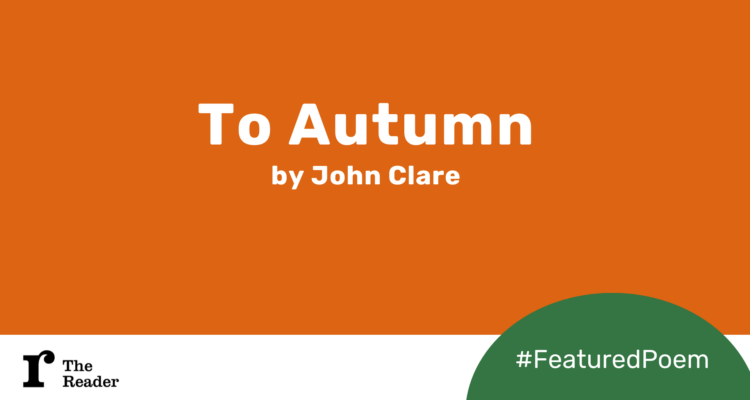Featured Poem: In Utrumque Paratus by Matthew Arnold
This week in our special series of Featured Poems, Head of Publications at The Reader, Grace Frame looks at the poem In Utrumque Paratus by Matthew Arnold.
During this month of September we are focussing in our online published readings on the theme of beginnings and endings. With this particular poem, ‘In Utrumque Paratus’, we might wonder just where to begin, especially with a title that begs for translation and doesn’t give us any immediate clues as to what the poem might be about. For this feature however, I am actually going to take my lead from the poem’s title which indicates at least that the poem is going to be looking at two things. The meaning of the Latin ‘In Utrumque Paratus’ is: ‘ready’ or ‘prepared’ ‘for either alternative’. So I am going to read the poem in two halves, to try to get to grips with what these ‘alternatives’ might be.
If, in the silent mind of One all-pure,
At first imagin’d lay
The sacred world; and by procession sure
From those still deeps, in form and colour drest,
Seasons alternating, and night and day,
The long-mus’d thought to north south east and west
Took then its all-seen way:
O waking on a world which thus-wise springs!
Whether it needs thee count
Betwixt thy waking and the birth of things
Ages or hours: O waking on Life’s stream!
By lonely pureness to the all-pure Fount
(Only by this thou canst) the colour’d dream
Of Life remount.
Thin, thin the pleasant human noises grow;
And faint the city gleams;
Rare the lone pastoral huts: marvel not thou!
The solemn peaks but to the stars are known,
But to the stars, and the cold lunar beams:
Alone the sun arises, and alone
Spring the great streams.
I wonder if the notion of ‘beginnings’ tempts us often to think of human beginnings: the birth of a human life, or a new season of activity: a job, a new school year, the founding of a business. But this poem takes us further back, to the beginning of the world, the great beginning that came before any of us were around. I find it curious here that Arnold writes of the ‘silent mind’ and ‘still deeps’ of the unnamed creative being that holds this all together. This is not a beginning that anyone else knows about, or that is announced as such. It feels as though the only way we can get back to what this might have been like is to use our own imaginations, and I like how the poem leads us along a certain imaginative path.
Something else I’m drawn to here is how the poem moves from referring to the foundation of a ‘world’ and the things within it, ‘in form and colour drest’, to suggesting that the interesting bit is where life comes from. This feels important somehow, as if we need to know what life itself is, and perhaps also what the source of it is like in its purest form. This seems to me related to what comes to mind when we ourselves think of beginnings: where can we get the energy we might need for them from, or what is in us that allows us to make a beginning? The poem speaks of ‘Life’s stream’, and ‘the colour’d dream of Life’. That flowing stream and the coloured dream must be needed in order for anything to come to be.
The poem then takes us to a rather lonely place from which many of the things with which we are familiar are noticeably absent. But it doesn’t end there, for there is a further question which Arnold had begun to broach with the poem’s opening ‘if’:
But, if the wild unfather’d mass no birth
In divine seats hath known:
In the blank, echoing solitude, if Earth,
Rocking her obscure body to and fro,
Ceases not from all time to heave and groan,
Unfruitful oft, and, at her happiest throe,
Forms, what she forms, alone:
O seeming sole to awake, thy sun-bath’d head
Piercing the solemn cloud
Round thy still dreaming brother-world outspread!
O man, whom Earth, thy long-vext mother, bare
Not without joy; so radiant, so endow’d—
(Such happy issue crown’d her painful care)
Be not too proud!
O when most self-exalted most alone,
Chief dreamer, own thy dream!
Thy brother-world stirs at thy feet unknown;
Who hath a monarch’s hath no brother’s part;
Yet doth thine inmost soul with yearning teem.
O what a spasm shakes the dreamer’s heart——
‘I too but seem!’
This second half feels more turbulent: it is the effect perhaps of not having available here that unnamed presence which suffuses the first three verses of the poem. It makes me think that beginnings don’t always look one way: they can be as different even as the variety of experiences that women can have in childbirth. It seems as though the efforts of the mother didn’t require to be mentioned in the alternative that the first three verses of the poem offer us, and yet, in this second half, the ‘long-vext mother’ - Earth - is a central character. There is a cost to what she bears, for she is ‘Unfruitful oft’, and yet there is also ultimately joy for her to experience when she sees the issue of her labours: no less than humanity itself.
Something about these lines also causes me to question what can happen if we doubt our own beginnings, or have no clear indicator of where we have come from. What about if we reject or just can’t come to terms with the story we have been told of our own origins? Despite the poem’s depiction of a mother who is so physically active and present, the opening phrase about this ‘unfather’d mass’ nags at me. I think this is why, though I little understand the last verse of the poem, I can see why it calls upon men and women – human beings – to have confidence: ‘Chief dreamer, own thy dream!’ If there is no one else around to give you that dream from the start, getting to the point where you can ‘own’ it for yourself becomes an imperative. Is this a whole life’s work, though, I wonder?
I feel rather grateful that this poem doesn’t resolve the difference that it posits between the two ‘if’s. But this in itself may leave each of us with a further question to answer for ourselves. How happy do we feel with having such alternatives posed for us, and do we feel able to say that we too are ‘ready for either’?
Share
Related Articles

Featured Poem: Lines by Thomas Hood
Our Featured Poem for February is 'Lines' by Thomas Hood, selected and read by Frances. Lines by Thomas Hood Let…

Featured Poem: Love by George Herbert
The Featured Poem for January is Love by George Herbert and is from the anthology Stressed, Unstressed and is read by…

Featured Poem: To Autumn
For November's Featured Poem, Julie is reading 'To Autumn' by John Clare To Autumn by John Clare Come, pensive…


